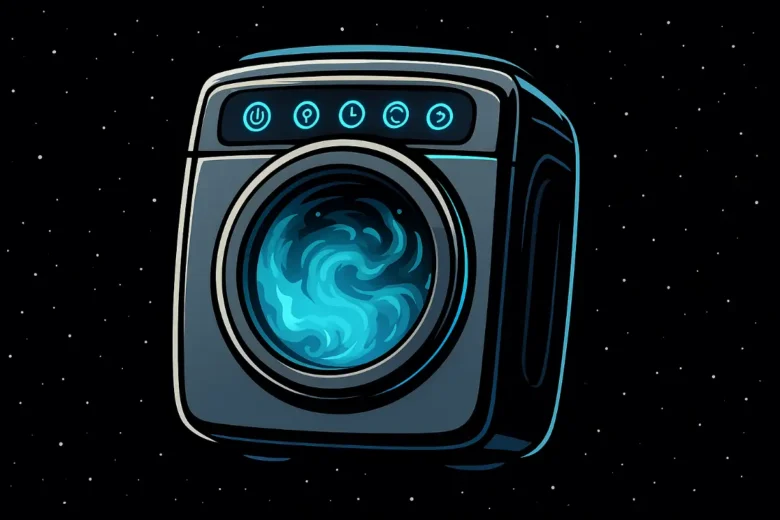Chinese researchers have unveiled a compact laundry system designed for use on space stations, offering a practical answer to one of the most persistent problems in orbit: dirty clothes. The machine, tested by the China Astronaut Research and Training Center, cleans without detergent and uses minimal water, making it well-suited for long missions where every drop of liquid is carefully recycled.
For years, astronauts aboard the International Space Station (ISS) and China’s Tiangong outpost have had no way to wash clothes. With water supplies too valuable to spare, they wear garments until they are no longer usable, then load them onto cargo ships that burn up on reentry. This approach adds to launch weight and costs, and it would be impractical for longer trips, such as a journey to Mars.
The new system is roughly the size of a small suitcase, weighs 12 kilograms, and can clean up to 800 grams of clothing in a half-hour cycle. It sprays garments with an ultra-fine mist of just 400 milliliters of water, far less than even the most efficient washing machines on Earth.
Instead of soap, the device uses ultraviolet light to generate ozone inside a sealed chamber. The ozone eliminates bacteria and odors before hot air dries the clothes and neutralizes any remaining gas. Sensors ensure nothing harmful leaks into the cabin.
Ozone, a molecule made of three oxygen atoms, is widely used in water treatment on Earth because it can break down microbes and organic matter quickly. In orbit, where free-floating water poses risks to equipment and crew, it offers a way to sanitize without leaving behind liquid waste. Tests show the process kills 99.9 percent of microbes, allowing astronauts to reuse clothing up to five times.
Previous efforts to solve the laundry problem have met limited success. NASA partnered with detergent maker Tide in 2021 to test special soaps in space, but the system was never adopted. In 2023, another company tested ultrasonic cleaning with small amounts of water, though bacteria remained afterward. China’s method appears to overcome both of those issues while using less water.
Researchers say the new washer could reduce the mass of clothing launched for long-term missions by more than 60 percent, saving fuel and space aboard rockets. Built to last at least five years, it could also support future lunar bases and Mars expeditions, where resupply from Earth would be slow or impossible.
The findings were published in the Chinese Journal of Space Science. Engineers now plan to refine the design and improve efficiency. Beyond spaceflight, the technology could influence Earth-based laundry machines by showing how to clean clothes with less water and no detergents.

